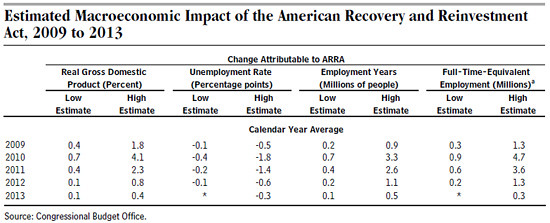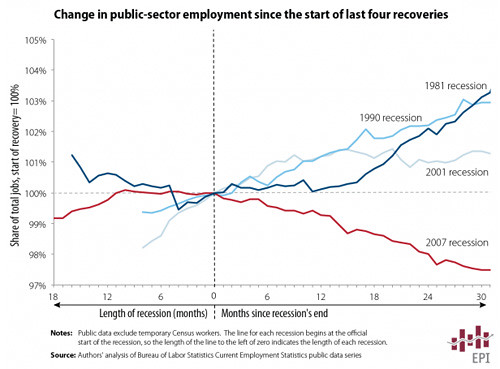So Mitt Romney has decided to end his presidential campaign the same way he started it. That is, by lying. During what his aides touted as a "major address" in Iowa Friday, Governor Romney charged that while President Obama "inherited a troubled economy," he "made the problem worse." That's the same long-debunked myth Romney used in his June 2, 2011 speech formally announcing his candidacy when he declared Obama "When he took office, the economy was in recession, and he made it worse, and he made it last longer."
But while Romney was pummeled by fact checkers last year as soon as the words first left his lips (prompting Mitt to hilariously claim for 24 hours "I didn't say things are worse; what I said was the economy hasn't turned around"), the "Obama made it worse" fraud has remained the centerpiece of his campaign. Unfortunately for Romney, the facts and the overwhelming consensus of economists - including the nonpartisan Congressional Budget Office and John McCain's 2008 brain trust - flatly contradict Mitt's closing argument. Instead, the numbers show and the experts confirm that President Obama saved the American free-enterprise system from the abyss and averted Great Depression 2.0.
Sadly for Romney and his Republican allies, history did not begin on January 20, 2009.
Continue reading below the fold.
And the data show that President Obama didn't inherit a "troubled economy," but one literally on the brink of collapse. Obama entered office in 2009 as the Bush recession was in full swing. GDP had plummeted by a shocking 8.9 percent the previous quarter. 820,000 jobs were lost in January 2009 alone; all told 2.2 million evaporated in the three months before Obama's stimulus was passed that February. (That might explain why more than three years after he left office, Americans still blame George W. Bush for the economic calamity he bequeathed to Barack Obama.) Now, even with the difficult recovery, the U.S. has produced over 30 consecutive months of private sector job gains and a return to economic growth. And despite Romney's charge that President Obama's are "the most anti-investment, anti-business, anti-jobs series of polices in modern American history," the Dow Jones has jumped by 68 percent since January 20, 2009. Corporate profits are at record highs even as firms' tax burden continues to drop.

Nevertheless, Governor Romney charged in June that the President "slowed the recovery and harmed our economy," a result he called "a moral failure of tragic proportions." Sadly for his campaign's mythmaking, just 24 hours earlier, the director of the nonpartisan Congressional Budget Office blew Romney's bogus claim out of the water.
As the Washington Post reported, the House Budget Committee heard testimony from CBO Director Douglas Elmendorf to answer simple question: did the $787 billion Obama stimulus work? Unfortunately for Republican propagandists, Elmendorf clearly refuted Mitt Romney's claim that the American Recovery and Reinvestment Act (ARRA) was "the largest one-time careless expenditure of government money in American history."
Under questioning from skeptical Republicans, the director of the nonpartisan (and widely respected) Congressional Budget Office was emphatic about the value of the 2009 stimulus. And, he said, the vast majority of economists agree.
In a survey conducted by the University of Chicago Booth School of Business, 80 percent of economic experts agreed that, because of the stimulus, the U.S. unemployment rate was lower at the end of 2010 than it would have been otherwise.
"Only 4 percent disagreed or strongly disagreed," CBO Director Douglas Elmendorf told the House Budget Committee. "That," he added, "is a distinct minority."
Not content with that response, Kansas Republican Rep. Tim Huelskamp tried again. "Where did Washington mess up?" Huelskamp demanded. "Because you're saying most economists think it should've worked. It didn't." As the Post's Lori Montgomery detailed, Elmendorf drove home the point:
Most economists not only think it should have worked; they think it did work, Elmendorf replied. CBO's own analysis found that the package added as many as 3.3 million jobs to the economy during the second quarter of 2010, and may have prevented the nation from lapsing back into recession.

As the assessment from Elmendorf's agency above shows, at its peak in 2010 the ARRA added up to 3.3 million jobs, cut unemployment by as much as 1.8 percent and boosted GDP by up to 4.1 percent. It's no wonder an analysis by the New York Times earlier this year concluded, "Despite criticism of its size and composition by both the right and the left, the stimulus by the Obama administration did add to jobs and growth."
The proof starts, but certainly doesn't end with the Congressional Budget Office. There is no shortage of other economists who confirm that President Obama not only did not make the American economy worse. No thanks to obstructionist Republicans in Congress, he saved the United States from "Great Depression 2.0" and put the nation on the path to recovery.

Among those economists is Mark Zandi, who in 2008 served as an adviser to Republican John McCain. Federal intervention, he and Princeton economist Alan Blinder argued in August 2010, literally saved the United States from a second Great Depression. In "How the Great Recession Was Brought to an End," Blinder and Zandi's models confirmed the impact of the Obama recovery program and concluded that "laissez faire was not an option":
The effects of the fiscal stimulus alone appear very substantial, raising 2010 real GDP by about 3.4%, holding the unemployment rate about 1½ percentage points lower, and adding almost 2.7 million jobs to U.S. payrolls. These estimates of the fiscal impact are broadly consistent with those made by the CBO and the Obama administration.
But their modeling also suggests that the totality of federal efforts to rescue the banking system dating back to the fall of 2008 prevented a catastrophic collapse:
We find that its effects on real GDP, jobs, and inflation are huge, and probably averted what could have been called Great Depression 2.0. For example, we estimate that, without the government's response, GDP in 2010 would be about 11.5% lower, payroll employment would be less by some 8½ million jobs, and the nation would now be experiencing deflation.
Even
Douglas Holtz-Eakin, former head of the CBO and chief economic adviser to John McCain during the 2008 election, acknowledged the impact of the stimulus. Certainly no fan of either Barack Obama or the design of the ARRA, Holtz-Eakin told Ezra Klein that:
"The argument that the stimulus had zero impact and we shouldn't have done it is intellectually dishonest or wrong. If you throw a trillion dollars at the economy it has an impact, and we needed to do something."

Lamentably, we still need to do more. While American GDP grew by 2 percent in the July-to-September quarter just completed, the slowdown in China and the deepening crisis in Europe are already having an impact here. But the same Senate Republicans who gave the February 2009 stimulus bill only three votes filibustered President Obama's proposed $447 billion American Jobs Act one year ago this month. (Nine days later, the GOP blocked $35 billion in aid to states to pay the salaries of teachers, firefighters and police.) As it turns out, the 600,000 jobs shed by state and local governments since December 2008 not only added as much a full point to the unemployment rate, but meant "the current recovery is the only one that has seen public-sector losses over its first 31 months."

Forecasters estimated that American Jobs Act stymied by the Republicans could have added up to 1.3 million jobs and 2 points to GDP this year. Nevertheless, Mitt Romney has repeatedly charged that Obama "hasn't put forth a plan to get us working again."
That simply isn't true. And neither is Mitt Romney's two year-old slander that President Obama "made the economy worse." Romney's closing argument to voters, like his opening statement, is a Big Lie. And his ceaseless repetition hasn't made it any made it any truer.


